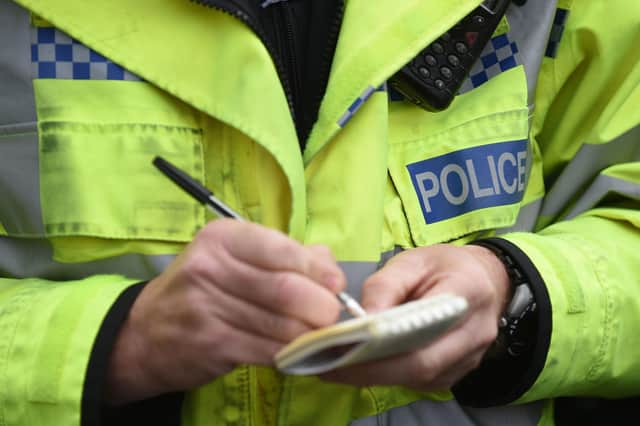Revealed: Sexual offences claims against London police officers and staff


More than 500 allegations of sexual offences were made against police officers and staff in London over five years, figures reveal.
It comes as Prime Minister Boris Johnson says there is “a massive job” to be done in restoring women’s confidence in police after the kidnap, rape and murder of Sarah Everard by a serving police officer.
Advertisement
Hide AdAdvertisement
Hide AdPublicly available figures provided under the Freedom of Information Act show 530 sexual offences claims were made against the Met Police officers and staff between 2016 and 2020.
Due to cases involving more than one officer or staff member, they related to 713 officers and staff – although an officer or staff member could also be involved in more than one case.
Most were against male officers and staff (577), while 86 were against females and in 50 allegations the gender was unknown.
Of the allegations against individual officers and staff, 96 resulted in a "case to answer" and 36 were substantiated.
Advertisement
Hide AdAdvertisement
Hide AdMeanwhile, 265 had "no case to answer", 80 were unsubstantiated and 57 were not upheld.
In nine allegations, it was deemed that “acceptable service” had been provided by the officer or member of staff, and in one, the case was "resolved".
Four saw no further action and 50 were discontinued or dispensed of.
A further 13 were withdrawn.
The results of 102 allegations were still to come at the time of the FOI response on June 23.
Advertisement
Hide AdAdvertisement
Hide AdThe data does not specify if the officers or staff members were on or off duty at the time the alleged incidents occurred.
The sex of the person making the accusation was also unknown in each case.
Responses from 33 police forces across Great Britain revealed that most claims over five years related to male officers, where their sex was recorded.
The End Violence Against Women Coalition, which includes groups like Rape Crisis, Refuge and Women's Aid, said few officers face "any meaningful consequences" for violence against women and girls nationally.
Advertisement
Hide AdAdvertisement
Hide AdThe organisation said the murder of Ms Everard took place within a broader context of violence perpetrated by the police, adding that trust in forces from women and girls was now at an all-time low.
Deputy director Denzi Uğur said: "We need to see a radical overhaul of how the police respond to violence against women – especially within their own ranks.
"This means greater accountability and urgent, coordinated and strategic action to address violence against women.
"Ultimately, we need to address these widespread institutional failings before we can even begin to address women’s confidence in the police."
Advertisement
Hide AdAdvertisement
Hide AdThe data from the Met Police was in response to a request for the number of allegations of sexual offences against police officers and staff.
It covered public complaints and internal conduct matters, which include those raised by members of the police against their colleagues.
Complaints could relate to historic allegations.
The Prime Minister has called for a change in the culture of policing following the rape and murder of Sarah Everard by serving police officer Wayne Couzens.
It emerged that Couzens had been accused of indecent exposure in 2015 – but was still able to transfer from Kent Police to the Metropolitan force.
Advertisement
Hide AdAdvertisement
Hide AdThe Independent Office for Police Conduct is investigating both forces for their handling of Couzens.
The body holds an oversight of the entire police complaints system and investigates the most serious police misconduct matters.
A spokesperson said: "The abuse of police powers for purposes of sexual exploitation, or violence, has a devastating impact on victims, and a serious impact on the public’s confidence in individual officers and the service in general.
"It is critical there are effective systems in place to prevent, monitor and deal swiftly with any individual who exploits that trust."
Advertisement
Hide AdAdvertisement
Hide AdHome Secretary Priti Patel this week launched an independent inquiry into the "systematic failures" by police following the murder of Ms Everard.
A Home Office spokesperson said: "The Home Secretary is determined to do everything in her power to deliver improvements within policing and across the criminal justice system.
“The inquiry will look into wider issues across policing – including vetting practices, professional standards and discipline, and workplace behaviour.
“As the public would rightly expect, we take police integrity very seriously and have already taken steps to overhaul the police complaints and discipline systems."
Advertisement
Hide AdAdvertisement
Hide AdThe inquiry has been welcomed by the National Police Chief's Council chairman, Martin Hewitt, who said vetting and professional standards procedures needed to be scrutinised to restore public confidence.
"I think having an independent inquiry is a very good way for that to be to be dealt with to really help us provide that reassurance," he added.